Green Office Management
Apart from home, we probably spend most of our time in the office. Through practising green management in the office, we can achieve more efficient use of resources and reduction of waste, save energy and money, and help improve our working environment. This article gives you some useful tips for green office management.
Useful Tips for Green Office Management
Looking closely at the current day-to-day housekeeping process in your office, you can easily discover many creative areas for the establishment of a green office managing mechanism. It is never too late to start!
1. Waste Reduction
Please keep in mind the five main points of waste reduction : “waste reduction at source, reuse, clean recycling, recover and disposal”.

Paper Saving
- Reduce paper consumption through application of computer technology (e.g. written communication by email, use computer to store documents etc.).
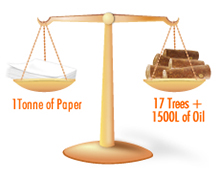
- Reduce printing and use e-fax, if necessary. Reuse single-sided paper for printing and receiving fax.
- Put recycling boxes near the photocopier to collect single-sided paper for reuse and both-sided used paper for recycling.
- Keep the normal setting of the printer to the mode of printing on both sides.
- Encourage staff to reuse stationery, e.g. used envelop and document folder.
- Produce electronic greeting cards ( for Lunar New Year, Christmas, etc.) for use by staff during festive occasions.
- Order recycled paper for printing.
Waste Electrical and Electronic Equipment (WEEE)
- Donate WEEE (such as computer, printer, photocopier, kettle or microwave, etc.) to charitable organisations or send them to recyclers for processing.
Promote a "food wise" culture
- Think before you order food : Think how much you can eat before you order. Choose suitable portions to avoid over-ordering.

- If you can’t finish your food, don’t waste it : Take away leftovers.
- Cut down on take away food and avoid using disposable cutlery.
- If there is a suitable place, consider to install a food composter in office to recover food waste.
- Avoid using disposable utensils.
Clean Recycling
- Install recycling bins to collect recyclables, such as waste paper, metal, plastic and glass bottles as well as CDs and rechargeable batteries, etc.
- Display notice or poster in the office to remind staff of the three key points of clean recycling, namely keeping recyclables clean, keeping composite materials out of recycling bins and keeping leftovers and used tissue paper away from recycling bins, in order to integrate clean recycling practices into daily life.
- For some recyclables such as fluorescent lamps, compact fluorescent lamps, toner, rechargeable batteries, etc., wrap them up properly before putting them into the recycling bins.
- Make sure that the recyclables collected are collected by recyclers for proper recycling.
- Use GREEN$ Mobile App to find out the locations (outside the office) of the recyclable collection points.
2. Energy Saving
- Support and participate in Energy Saving Charter & 4T Charter Schemes.
- Switch off electrical appliances when they are not in use (such as air-conditioning, computer, printer, photocopier, lighting, etc.)
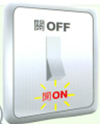
- During summer time, maintain an average indoor temperature between 24 - 26°C to save energy.
- Install thermometers in different area of the office to monitor the temperature.
- Use lamps with high energy efficiency, such as Light Emitting Diode (LED) lamps. Make reference to the energy label on the product, where a "Grade 1" product is the most energy efficient, "Grade 5" is the least.
- Use the power management function to turn the PC into "sleep" or "hibernation" mode as appropriate when it is idle.
- Set photocopiers, printers and fax machines to enter as soon as possible the "Low Power", "Sleep" or "Off" mode when idling.
- Use appliances with timer control or automatic power-off function. Do not leave them in standby mode for a long period of time or after office hours.
- Choose electrical appliances with “Grade 1” energy label (such as refrigerator, air conditioner, etc.)
- Choose energy efficient computers, monitors, photocopiers, printers and fax machines, such as those with an energy label.
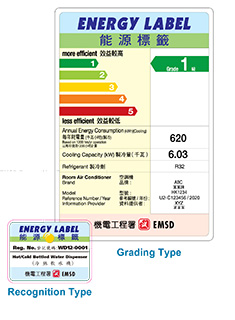
- Conduct regular energy audit to monitor energy consumption.
- Encourage staff to use stairways instead of lift.
3. Indoor Air Quality (IAQ)
- Maintain adequate air ventilation. Do not block air vents and ducts.
- If air-conditioners are used, maintain good ventilation with sufficient fresh air supply.
- Clean regularly the ventilation system including air filter and ducting, and maintain the system in good working condition at all times.
- Avoid using aerosol products such as air fresheners or pesticides.
- Dispose of perishable food products properly to avoid generating unpleasant odour.
- Remove and clean visible moulds once they are found.
- Report to the building management for follow-up of problems that may affect IAQ, e.g. water leakage that may lead to the growth of micro-organisms affecting environmental hygiene and air quality.
- Join the voluntary IAQ Certification Scheme for Offices and Public Places.
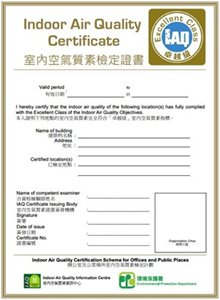
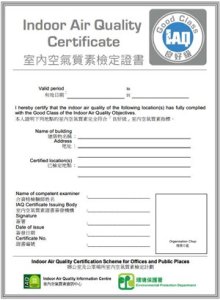
4. Green Procurement
- Purchase green stationery such as recycled paper, refillable ball pens, recycled pencils, and recyclable laser printer toner cartridges, etc.
- Purchase office equipment ( e.g. photocopier and printer) with Energy Efficiency label.
- Purchase furniture made of recycled materials.
5. Other Useful Tips
- Appoint a "Green Manager" to implement and promote green practices.
- Use environmental friendly cleansing products for cleaning carpets.
- Continuously assess the compliance with the green office guidelines.
- Organise training programme and workshop to enhance the staff’s environmental awareness.